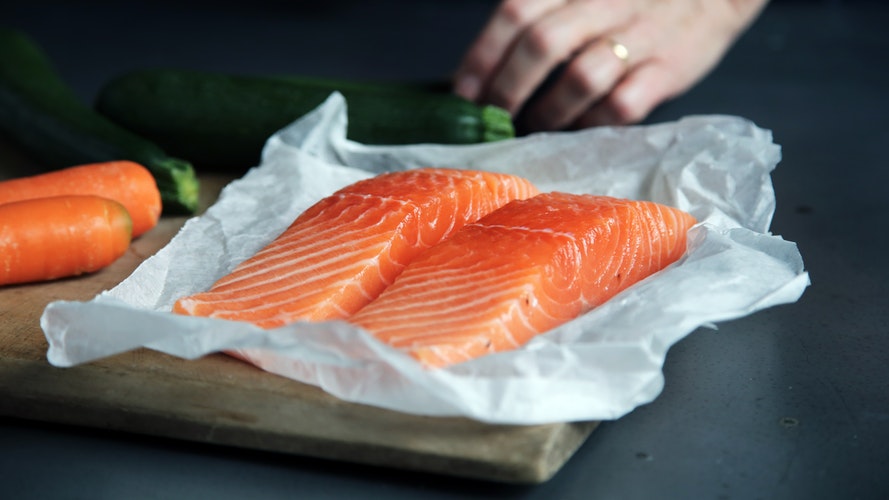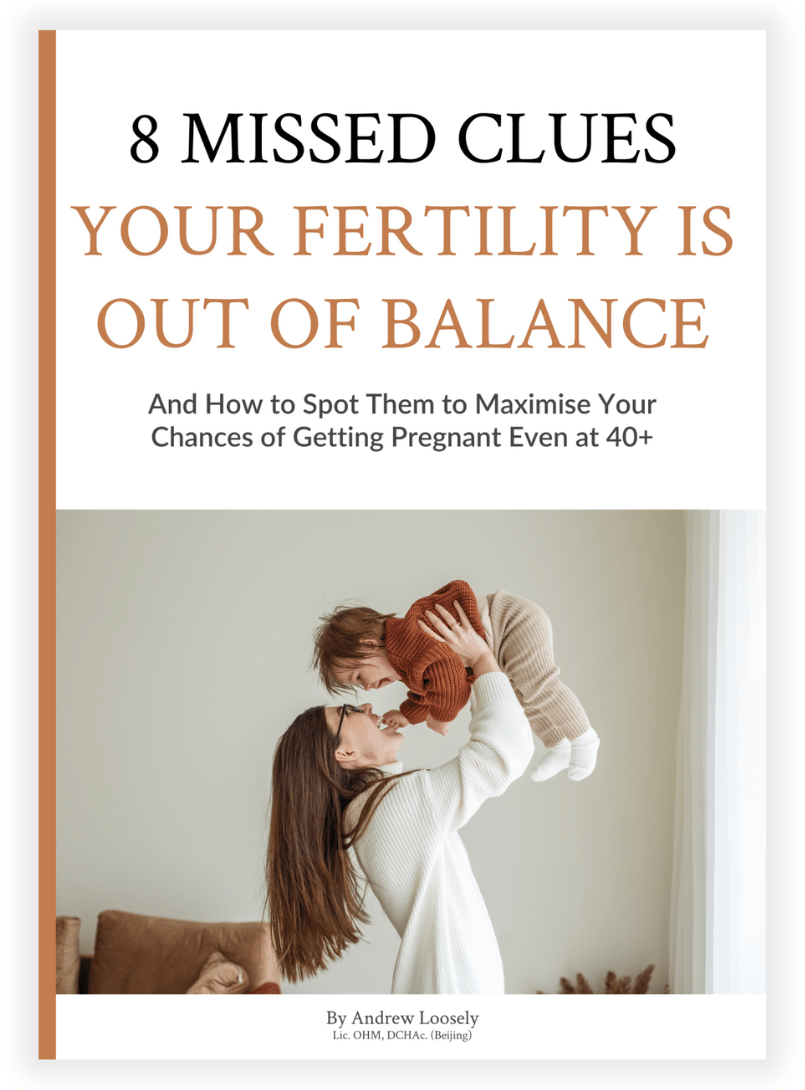Vitamin D – Is Salmon a Good Source?

You may already know that salmon is an excellent source of essential omega-3 fatty acids, which have many health benefits including supporting fertility.
But, did you know that: A small 85 g portion of cooked sockeye salmon will give you up to 90% of the recommended daily dietary intake of vitamin D?
This is of course great news as you might be able to ditch the unhealthy Vitamin D supplements and eat salmon as a good source instead.
There are 2 important actions to take if you do eat salmon:
- You must make sure you only buy wild line caught salmon. Studies have shown that as much as 80% of fish that is marked and sold as ‘wild’ fish, are actually farmed!
Farmed fish are exposed to a variety of growth stimulants and medications, as well as foods that are not their natural diet. Collectively their diet, medication, and growth stimulants produce a poor and possibly toxic form of fish for us.
So, how can you tell whether a salmon is wild or farm-raised by looking at it?
The flesh of wild sockeye salmon is bright red in colour due to its natural astaxanthin content. It’s also lean and the fatty streaks, which you can see as white stripes in the meat, are very thin.
If the fish is pale pink in colour with wide fatty streaks, then the salmon is very likely farmed and should be avoided.
Farmed fish are often fed a synthetic version of astaxanthin, without which they would be grey or off-white in colour. The pale pink flesh that’s produced in the farmed fish comes from the synthetic astaxanthin, which colours the white or greyish farmed meat to a pale pink.
Obviously this is a completely unnatural and unhealthy form of salmon to eat.
- Check your labels and avoid salmon that’s labelled as “Atlantic Salmon” as this is typically from fish farms.
The two labels you want to look for are: ‘Alaskan Salmon’ and ‘Sockeye Salmon’.
Alaskan Sockeye is not allowed to be farmed and so this is a pretty safe option.
If you find Sockeye salmon, it’s also likely to be wild fish.
Again, the colour (red flesh and not pale pink) of the fish will usually tell you it’s wild.
Key Nutrients of Salmon are:
Vitamin B1: Thiamin is involved in the production of energy through the breakdown of sugars and carbohydrates. This is important for cellular health, which may also influence the health and energy of sperm and egg cells. It’s also important for energy support during pregnancy.
Vitamin B2: Research shows that Riboflavin can act as an antioxidant, which helps to combat against harmful free radicals. Free radicals are known to negatively impact sperm and egg health, and so antioxidants are a vital part of the human diet.
Vitamin B3: Niacin as with most other B vitamins is involved in energy production within the mitochondria of your cells (the powerhouse of the cell). Pregnancy requires good levels of niacin, as does breastfeeding.
Vitamin B5: B5 is involved in the production of hormones, along with cholesterol, and so is vital for maintaining fertility health.
Vitamin B6: Pyridoxine is involved in breaking many types of chemical bonds and is a component of many enzymes – which are involved in breaking down foods and substances, and also regulating steroid hormones.
Vitamin B9: Folate is an important nutrient for general and fertility health. It’s involved in the creation of DNA as well as the building of proteins, and many other important functions including the healthy development of your baby’s’ spinal cord. During pregnancy folate also supports the growth of the placenta and helps to prevent several types of birth defects, especially those of the brain and spine.
Vitamin B12: Aiding in the production of DNA, RNA, and neurotransmitters, Cobalamin is a really important nutrient for developing healthy eggs and sperm – and also for your babies’ future health development.
Vitamin D: is a fat-soluble hormone produced through exposure of the skin to sunlight and is a vital nutrient for many processes in your body.
Selenium: is one component of antioxidant enzymes and is also used by the body to help support thyroid health, particularly the conversion of thyroid hormones from one to the other. This can help support your thyroid health, which is fundamental for fertility health and pregnancy.
Copper: Copper is essential for overall health and is involved in many processes in the body. It cannot be produced by the body and must, therefore, be consumed through food. Copper helps maintain healthy bones, blood vessels, nerves, and immune function, and it contributes to iron absorption.
Potassium: Is an electrolyte which counteracts the effects of sodium, helping to maintain consistent blood pressure levels – another important element for pregnancy.
Magnesium: Supports a healthy immune system as well as keeps bones strong. It is also great for stress, and combined with vitamin B6 can help induce sleep and alleviate symptoms of bloating and weight gain associated with PMS.
Iron: Is a mineral that the body uses to carry oxygen in the blood and plays a key role in strengthening the immune system and helps regulate body temperature.
Zinc: Zinc is essential for the repair and function of DNA, which affects sperm and egg quality. It’s also essential for the rapid growth of cells and the building of major parts of cells during a pregnancy. The development and enzyme activity that takes place during pregnancy is supported by zinc, which means that this is one of the most important nutrients for babies and mothers.
CHINESE FERTILITY MEDICINE USE IT TO:
- Treat Qi Deficiency
- Treat Blood Deficiency
- Suitable for men and women, but particularly helpful for male fertility
QI DEFICIENCY
Qi is the word used in Chinese Fertility Medicine to describe energy, life force, or vitality inside and outside the body.
Qi is the non-physical aspect of your body that makes all of your organs and systems work.
This means that it’s vital for the function of all aspects of your fertility, and pregnancy health too. When your Qi is deficient your body struggles to function efficiently, and this can lead to a variety of fertility issues.
When Qi becomes more severely deficient you will likely present with hormone imbalance, typically with reduced Progesterone, Testosterone and/or FSH levels. In some cases the FSH can rise and present itself as being elevated, due to the ovaries or testes being underactive and sluggish (tired).
Click here to read more about Qi Deficiency
BLOOD DEFICIENCY
Blood deficiency is a Chinese Fertility Medicine term used to describe an imbalance in the quality of the blood.
The blood is responsible for circulating nutrients throughout the body to all of your cells, including egg and sperm cells.
When it is deficient the blood can’t properly nourish the body and certain aspects of health get out of balance.
This can impact egg and sperm health as the deficient blood is unable to transport necessary nutrients to the eggs and sperm – causing a depletion in their quality, quantity, and activity.
If the Blood deficiency reaches a deeper level of imbalance you will see physiological changes in the blood, such as reduced iron, hemoglobin, ferritin, B-vitamins and other nutrients. You may also see changes in the volume and quantity of the blood cells and it’s clotting ability or nature.
Click here to read more about Blood Deficiency
Season available: If you are unable to get hold of wild salmon, try freshwater farmed salmon, which is available all year round, wild salmon is only available in during the Spring and Summer season.
How it’s typically cooked: Salmon is incredibly versatile and can be baked, grilled, bbq’d, poached or fried and eaten with a selection of vegetables.
Cautions: Avoid if you have skin conditions such as Eczema, Psoriasis or Acne. Always avoid farmed Salmon and eat only wild caught salmon.
Disclaimer: https://naturalfertilityexpert.com/disclaimer/
Need more help?

Free Guide
8 MISSED CLUES YOUR FERTILITY IS OUT OF BALANCE – even if you’re over 40
Discover What’s Stopping You Having Your Baby
8 MISSED CLUES YOUR FERTILITY IS OUT OF BALANCE – even if you’re over 40
If you’re 40 or over and pregnancy isn’t happening for you naturally, or with IVF, then this guide will help you discover why being 40+ isn’t a barrier to having a baby – as long as you identify the root cause of your fertility issues and then bring your body back into balance.